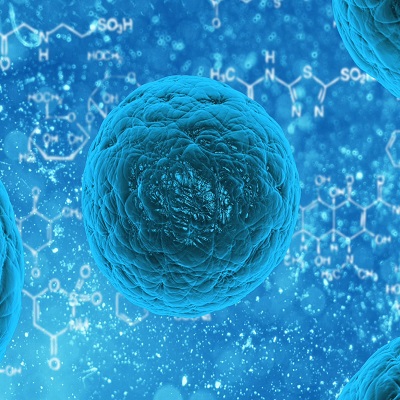 NIH awards $12M for development of antiviral therapies
NIH awards $12M for development of antiviral therapies
The National Institute of Allergy and Infectious Diseases, part of the National Institutes of Health (NIH), has awarded three institutions more than $12 million for the development of antiviral therapies to treat diseases caused by viruses with pandemic potential. Read More
 Signal detection enables clear imaging of human cells
Signal detection enables clear imaging of human cells
Beckman Institute researchers have developed an innovative method to clearly visualize the structure and chemical composition of a human cell. Read More
 Unusual antibody proves potent against Zika virus
Unusual antibody proves potent against Zika virus
Researchers have identified an unusual type of antibody that, even at miniscule levels, neutralizes the Zika virus rendering viral infection undetectable in preclinical models. Read More
 Restoring intestinal wall may help prevent cognitive impairment after strokes: study
Restoring intestinal wall may help prevent cognitive impairment after strokes: study
Scientists at the Texas A&M University School of Medicine contend that restoring the walls of the intestine could help prevent cognitive impairment after strokes. Read More
 Scientists regenerate severed axons in mice
Scientists regenerate severed axons in mice
Researchers out of Hong Kong have regenerated severed axons by deleting a specific gene and combining it with an interferon, which has implications for central nervous system damage. Read More
 Scripps Research identifies new drugs to cut alcohol use in PTSD survivors
Scripps Research identifies new drugs to cut alcohol use in PTSD survivors
Scripps Research scientists have identified a class of drugs that decreases alcohol preference and intake as well as other behaviors associated with post-traumatic stress disorder (PTSD), such as aggression, excessive fear, and hyperarousal. Read More
 Bio-Rad launches new antibody discovery platform
Bio-Rad launches new antibody discovery platform
Bio-Rad Laboratories has launched the Pioneer Antibody Discover Platform, a new antibody discovery service designed to develop "best-in-class" biologic candidates. Read More
 New prodrug eliminates cancer cells without harming healthy cells
New prodrug eliminates cancer cells without harming healthy cells
Johns Hopkins Medicine researchers have revamped an anticancer drug to preferentially eliminate cancer cells while leaving healthy cells unharmed. The study, published November 16 in the journal Science Advances, utilized a prodrug designed to release its payload into a tumor. Read More
 NSF grant awarded to develop membrane purification platform
NSF grant awarded to develop membrane purification platform
University of Kentucky researchers, in collaboration with the University of Arkansas and Clemson University, have received a $1.6 million National Science Foundation (NSF) grant to create a membrane purification platform for large-scale biomanufacturing of viral vectors and virus-like particles. Read More
 Cancer cell biology suggests which patients will respond to immunotherapy
Cancer cell biology suggests which patients will respond to immunotherapy
Researchers have discovered that more genetic material on chromosome 9 in cancer cells translates into a three times longer survival rate than those patients without it for certain kinds of head and neck cancer. Read More
Member Rewards
Earn points for contributing to market research. Redeem your points for merchandise, travel, or even to help your favorite charity.
Research Topics
Interact with an engaged, global community of your peers who come together to discuss their work and opportunities.
Connect
Tweets by @ScienceBoard



